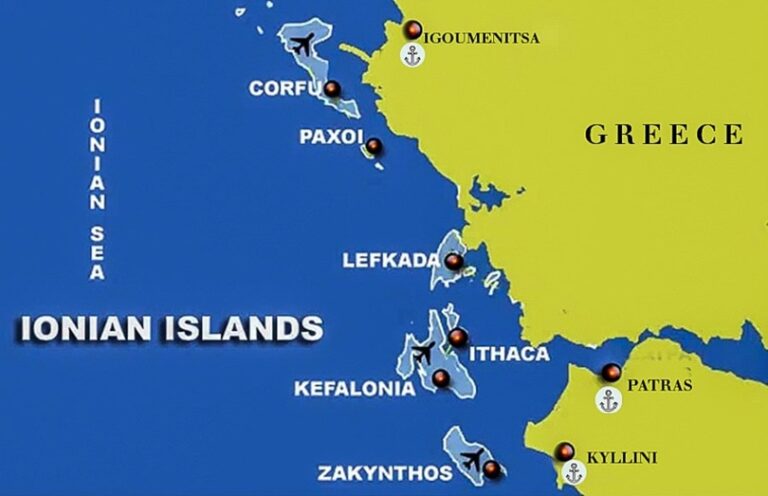The intensifying conflict between Israel and Hamas raises concerns about traveling in the Middle East and North African (MENA) region. Israel shares its borders with Lebanon to the north, Jordan and Syria to the east, and Egypt to the south, where an attack on an Israeli tour group on October 8 resulted in two casualties.
Other countries in the MENA region, such as Tunisia, Morocco, the United Arab Emirates, and Oman, are currently unaffected by the ongoing violence. However, this situation has left some travelers uncertain about the advisability of embarking on leisure trips to these areas at this time.
Due to guidance from the Foreign Office, all vacations, including cruise trips to Israel, are presently either canceled or face substantial delays. The advisory discourages all travel to Gaza, parts of southern Israel near the border with Gaza, a strip along the Lebanese and Syrian borders, and recommends against non-essential travel to the rest of the country. The advisory highlights the risk of a significant conflict occurring in southern Israel, particularly near the Gaza border, where rocket attacks have been reported. Additionally, the Foreign Office advises against travel to Lebanon.
Official guidance for Egypt maintains its long-standing caution against visiting specific areas, including North Sinai, the Gaza crossing at Rafah, and regions along the Libyan border. However, there are no travel warnings in effect for well-known tourist destinations like Hurghada, Sharm el-Sheikh, and attractions along the Nile.
Likewise, there is no advisory against traveling to Jordan, where visitors can explore popular sites like Wadi Rum, Petra, and the Dead Sea. The Jordanian tourist board has released a statement emphasizing their commitment to the safety and well-being of tourists from around the world. They assure travelers that Jordan remains a secure and welcoming destination, with open borders, despite recent developments in Gaza.
On the other hand, Morocco is regarded as a safe destination for tourists, and the majority of Tunisia is considered secure, with the exception of its remote border areas. Oman is also a safe travel option, as are popular locations like Abu Dhabi, Dubai, Ras al-Khaimah, and other emirates within the United Arab Emirates.
The road distance between Tel Aviv and the Turkish holiday destination of Fethiye exceeds 1,000 miles, and it’s even farther from Gaza. Currently, the Foreign Office has not issued any travel warnings for Turkey, with the exception of a six-mile buffer zone along the Syrian border.
The travel industry is closely guided by official government advice, and if there are no travel warnings issued for a particular country, operations usually continue as usual. Major travel companies like Tui haven’t observed any significant decline in travel interest to Egypt, emphasizing the importance of checking Foreign Office advice. Steppes Travel reported that out of three concerned clients seeking reassurance, two still chose to proceed with their travel plans to the region.
Zina Bencheikh from Intrepid noted that a small number of customers expressed concerns about visiting Egypt or Jordan due to the situation in Israel and the Palestinian territories, but reassurances were provided, and most were content to continue their travel arrangements.
John Tangney, specializing in Holy Land tours, has been in contact with approximately 200 clients scheduled to visit Israel in November. They are considering postponing these trips for around five months, with the intention of resuming business in the region in March 2024, though a final decision will be made next week.
An increasing number of airlines are scaling back or suspending their flights to Israel due to the worsening violence. British Airways, Virgin Atlantic, Wizz Air, Air France-KLM, Lufthansa, United, Delta, and American have temporarily halted their operations.
“Due to the evolving situation in Israel we have paused our flight operations to and from Tel Aviv until October 17. We will be contacting customers who are due to travel to and from Tel Aviv on these dates by email and SMS with the details provided at the time of booking and check-in,” EasyJet in a statement.
El Al said that flights would go ahead as scheduled.
If there are no travel advisories from the Foreign Office for other Middle East and North African (MENA) nations, regular booking conditions apply, and canceling your trip is typically considered a “disinclination to travel.” This means you may not be eligible for a refund under the Package Travel Regulations (PTRs). However, it’s advisable to discuss any concerns with your tour operator as they might offer some flexibility.
Tour operators have been working to evacuate clients from Israel in response to the ongoing conflict. Travelers who have booked package holidays can expect assistance under the PTRs if the conflict spreads to other regional countries. According to Regulation 12 (7) of the PTRs, in cases of unavoidable and extraordinary circumstances affecting the destination or immediate vicinity, travelers can terminate the package travel contract before the trip’s start without incurring a termination fee. Those who have booked independently have no such safety net.
The majority of travel insurance policies typically do not provide coverage for events linked to war, invasion, armed conflict, or civil insurrection.
Policy documents usually include a clause that absolves the insurer from responsibility in cases involving “war, invasion, acts of foreign enemies, hostilities, civil war, rebellion, terrorism, revolution, insurrection, civil commotion, and civil unrest,” whether or not a formal declaration of war has occurred. It’s essential for travelers to review the fine print of their policies to understand the extent of coverage.
(Source: The Times UK)







